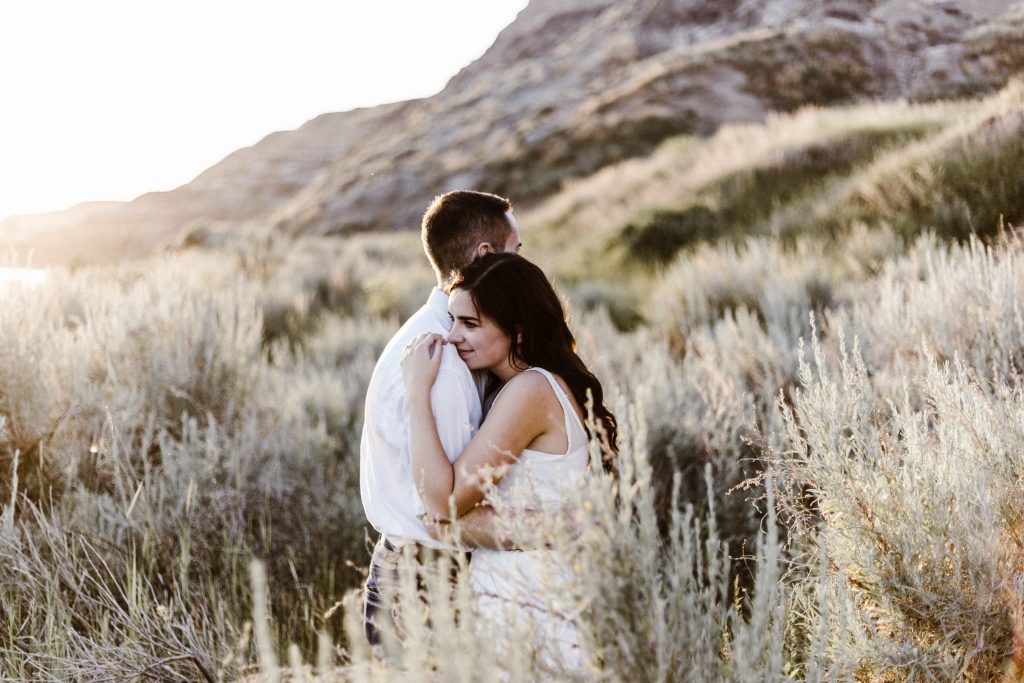Curious to know if there was a harmonious bond between two legendary musicians? In the world of music, rumors and speculations often swirl around the relationships between bandmates, and The Beatles were certainly no exception. Among the Fab Four, George Harrison and Paul McCartney held a unique dynamic that captivated fans and critics alike. Delving into their personal connection may provide us with insights into their collaboration and the impact it had on their musical journey. So, let’s take a closer look at the intriguing question: Did George Harrison and Paul McCartney get along? Join us on this captivating exploration to uncover the truth behind their legendary partnership. (Disclosure: As an Amazon Associate, I earn from qualifying purchases.)

George Harrison and Paul McCartney’s Relationship
George Harrison and Paul McCartney had a complex and multifaceted relationship throughout their time as bandmates in The Beatles. From their early days as aspiring musicians to their post-breakup collaborations, their interaction was filled with both creative synergy and personal differences. Let’s delve into the various aspects of their relationship, from the early days of their partnership to their enduring legacy.
Early Days as Bandmates
In the early days of The Beatles, George Harrison and Paul McCartney shared a camaraderie fueled by their shared love for music. As teenagers, they embarked on their musical journey together, honing their skills and dreaming of success. They often bonded over their mutual admiration for rock ‘n’ roll legends like Elvis Presley and Chuck Berry, forging a strong connection that would lay the groundwork for their future collaborations.
Collaboration on Songs
Throughout their time as bandmates, George Harrison and Paul McCartney collaborated on numerous songs that became iconic hits. McCartney’s melodic sensibility and Harrison’s unique guitar skills complemented each other perfectly. “Something,” one of Harrison’s most famous compositions, showcased his songwriting prowess and received critical acclaim. McCartney’s harmonies and contributions to Harrison’s songs, such as “While My Guitar Gently Weeps,” added depth to their collaborations and highlighted their mutual respect for each other’s talent.
Creative Differences
Despite their successful collaborations, George Harrison and Paul McCartney had their fair share of creative differences within The Beatles. As the band’s primary songwriters, McCartney and John Lennon often took the spotlight, leaving Harrison with limited opportunities to showcase his own compositions. This power dynamic strained their relationship at times, with Harrison feeling sidelined and undervalued. However, these creative differences also pushed Harrison to grow as an artist, resulting in the development of his signature sound and the eventual success of his solo career.
Personal Differences
While George Harrison and Paul McCartney shared a passion for music, they also had distinct personalities that sometimes clashed. McCartney was known for his energetic and outgoing nature, often taking on a leadership role within the band. In contrast, Harrison was more introspective and reserved. These differences in temperament occasionally led to tension within The Beatles, as they navigated the challenges of fame and the pressures of being part of a cultural phenomenon. However, their shared love for music ultimately prevailed, keeping their bond intact despite the personal differences they might have had.
Reconciliation
After The Beatles disbanded in 1970, George Harrison and Paul McCartney embarked on their solo careers, taking different musical directions. It wasn’t until the mid-1970s that their relationship began to mend. McCartney reached out to Harrison, inviting him to collaborate on the hit song “Photograph” and subsequently performing together on Harrison’s “Saturday Night Live” appearance. This reconciliation marked a turning point in their relationship, as they moved beyond the tensions of the past and embraced the opportunity to support each other’s artistic endeavors.
Post-Breakup Relationship
Following their reconciliation, George Harrison and Paul McCartney continued to support and collaborate with each other. One of their most notable joint efforts was the Concert for Bangladesh, a charitable event organized by Harrison in 1971. McCartney’s participation in the concert and subsequent album release furthered their bond and demonstrated their shared commitment to using music for positive change. Although they didn’t embark on extensive collaborative projects afterward, their mutual respect and occasional joint appearances solidified their enduring friendship.
Influence on The Beatles’ Music
George Harrison and Paul McCartney’s contributions to The Beatles’ music were invaluable. Both musicians played a significant role in shaping the band’s sound, pushing boundaries, and experimenting with new musical styles. Their distinct songwriting approaches and instrumental skills brought a unique flavor to The Beatles’ catalog, enhancing the band’s sonic tapestry and captivating audiences worldwide.
Impact on Songwriting
McCartney’s knack for crafting catchy melodies and well-structured pop songs played a crucial role in defining The Beatles’ sound. From the infectious “Hey Jude” to the whimsical “Penny Lane,” McCartney’s songwriting prowess left an indelible mark on the band’s discography. Meanwhile, Harrison’s compositions, such as “Here Comes the Sun” and “Taxman,” introduced a blend of Eastern influences and introspective lyrics, adding depth and variety to The Beatles’ repertoire. Their diverse songwriting styles expanded the band’s artistic range and ensured their enduring popularity.
Musical Contributions
Beyond their songwriting talents, George Harrison and Paul McCartney’s instrumental skills elevated The Beatles’ music to new heights. McCartney’s melodic bass lines and innovative piano playing lent a distinctive flavor to many of the band’s tracks. Harrison’s proficiency on the guitar, particularly his exploration of slide guitar techniques and Indian classical music, brought a unique dimension to The Beatles’ sound. Their instrumental prowess was particularly evident in songs like “While My Guitar Gently Weeps,” where their individual talents blended seamlessly, resulting in a truly captivating listening experience.
Shared Frustrations
While George Harrison and Paul McCartney made significant contributions to The Beatles’ music, both musicians shared frustrations about the band’s dynamics and the overwhelming pressures of their success. McCartney, in particular, felt the burden of the band’s leadership and the weight of expectations from fans and the media. Harrison, on the other hand, struggled with his evolving musical identity within the confines of The Beatles’ collective vision. These shared frustrations bonded them in a unique way, as they empathized with each other’s struggles and sought solace in their shared experiences.
Public Perception and Media Rumors
Throughout their careers, George Harrison and Paul McCartney faced intense scrutiny from the media, which often fueled speculations of rivalry and conflict between them. Here’s a closer look at how public perception and media coverage shaped the narrative surrounding their relationship.
Speculations of Rivalry
As two of the primary songwriters in The Beatles, George Harrison and Paul McCartney were subject to constant comparison and scrutiny. Media outlets often sensationalized perceived rivalries between the band members, pitting McCartney’s and Harrison’s musical abilities against each other. While there may have been moments of healthy competition within the band, much of the reported rivalry was exaggerated or misconstrued. In reality, their relationship was more complex and nuanced, characterized by collaboration and respect.
Media Coverage
The Beatles’ unprecedented success drew significant media attention, with journalists often fixating on any signs of tension within the band. This relentless coverage put George Harrison and Paul McCartney under the microscope, amplifying any disagreements or creative differences that arose during their time in The Beatles. Unfortunately, the media’s portrayal of their relationship often overshadowed their musical achievements and the genuine friendship they shared.
George’s Memoir
In 1980, George Harrison released his memoir, “I, Me, Mine,” which offered insights into his life and his experiences as a member of The Beatles. While the book touched upon his relationship with Paul McCartney, it primarily focused on Harrison’s personal journey and his spiritual beliefs. Rather than perpetuating rumors or dwelling on past conflicts, Harrison chose to highlight his growth as an individual and his gratitude for the opportunities The Beatles afforded him.
Paul’s Perspective
Paul McCartney has also shared his perspective on Paul McCartney and George Harrison’s relationship in various interviews and autobiographical works. McCartney has emphasized the camaraderie and shared experiences they had as bandmates, recognizing the invaluable contributions Harrison made to The Beatles’ music. McCartney’s reflections have helped debunk rumors of animosity and reinforce the notion that their relationship was built on mutual respect and a shared passion for music.
The Beatles’ Breakup and Its Impact
The breakup of The Beatles in 1970 marked the end of an era and had a profound impact on George Harrison and Paul McCartney. Here, we explore the factors that led to the band’s dissolution and the subsequent paths each member took.
Tension within the Band
Several factors contributed to the tension within The Beatles during their final years. Creative differences, personal conflicts, and the strain of constant media scrutiny took a toll on the band’s dynamic. The increased involvement of others in the decision-making process, such as Yoko Ono’s influence on John Lennon, further strained the relationships between the band members. These tensions ultimately reached a breaking point, leading to the band’s breakup.
George’s Decision to Leave
George Harrison’s decision to leave The Beatles played a significant role in the band’s dissolution. Frustrated by the limited opportunities for his songwriting and feeling overshadowed by Lennon and McCartney, Harrison sought to explore his artistic potential outside the confines of the band. His departure signaled the end of an era and marked the beginning of his successful solo career.
Paul’s Efforts to Keep the Band Together
Paul McCartney, known for his tenacity and strong desire to keep The Beatles intact, made significant efforts to salvage the band. Even as tensions mounted and the band’s future grew uncertain, McCartney spearheaded initiatives to bring the members closer and reignite their creative spark. Despite his best efforts, external pressures and the irreparable fractures within the band made it impossible to sustain The Beatles as a unit.
Aftermath and Solo Careers
Following the breakup of The Beatles, George Harrison and Paul McCartney embarked on successful solo careers. Both musicians continued to create music and achieve success in their individual endeavors. Harrison’s albums, such as “All Things Must Pass,” showcased his growth as a songwriter and his exploration of spiritual themes. McCartney, in turn, achieved immense popularity with his band Wings and as a solo artist, producing hits like “Band on the Run” and “Maybe I’m Amazed.” Their solo careers cemented their positions as musical icons in their own right.

George and Paul’s Post-Beatles Collaboration
Despite the dissolution of The Beatles, George Harrison and Paul McCartney continued to collaborate, albeit in more limited capacities. One of their most notable joint efforts was the Concert for Bangladesh, a groundbreaking event that marked the first large-scale benefit concert in history.
The Concert for Bangladesh
Organized by Harrison in 1971, the Concert for Bangladesh aimed to raise funds and awareness for the humanitarian crisis in Bangladesh. McCartney’s participation in the concert reinforced the bond between the former bandmates and demonstrated their shared commitment to using their platform for causes they believed in. The concert was a resounding success and showcased the enduring camaraderie and musical chemistry between Harrison and McCartney.
Later Collaborations
While George Harrison and Paul McCartney did not embark on extensive collaborations after the Concert for Bangladesh, they occasionally crossed paths for special musical moments. McCartney appeared on Harrison’s solo albums, such as “All Things Must Pass” and “Cloud Nine,” providing backing vocals and instrumental contributions. These collaborations served as a testament to their enduring friendship and the musical bond they forged throughout their years together in The Beatles.
Memories and Tributes
The passing of George Harrison in 2001 had a profound impact on Paul McCartney, as he, along with the rest of the world, mourned the loss of a musical legend and dear friend. McCartney paid tribute to Harrison through heartfelt songs that celebrated their shared experiences and the indelible mark Harrison left on the world of music.
George’s Passing
George Harrison’s battle with cancer came to an end on November 29, 2001, leaving the music world in mourning. His passing marked a poignant moment for Paul McCartney, who had shared a significant part of his life and musical journey with Harrison. McCartney, along with other former bandmates and friends, attended Harrison’s private memorial service, paying their respects to the man who had contributed so much to their collective legacy.
Paul’s Tribute Songs
In the wake of George Harrison’s passing, Paul McCartney channeled his grief into music, penning poignant tribute songs dedicated to his fallen friend. Songs like “Friends to Go” and “Too Much Rain” from his album “Chaos and Creation in the Backyard” reflected his deep admiration for Harrison and served as a testament to their enduring friendship. Through his music, McCartney ensured that Harrison’s memory would live on within his own creative legacy.
Legacy and Influence
The impact of George Harrison and Paul McCartney’s relationship extends far beyond the boundaries of their time together in The Beatles. As two extraordinary musicians and songwriters, their contributions continue to resonate with generations of music lovers. From the enduring popularity of The Beatles’ catalog to their individual solo endeavors, Harrison and McCartney left an indelible mark on the world of music. Their friendship and collaboration forged a legacy that will be cherished for generations to come.

Conclusion
George Harrison and Paul McCartney’s relationship was a testament to the power of music and the enduring bonds forged through creative collaboration. Despite the challenges they faced as bandmates, their contributions to The Beatles’ music and their subsequent post-breakup reconciliations demonstrated their mutual respect and shared love for their craft. Their individual journeys and legacies continue to inspire musicians and fans alike, solidifying their place as icons within the annals of music history.
Disclosure
As an Amazon Associate, I earn from qualifying purchases.



